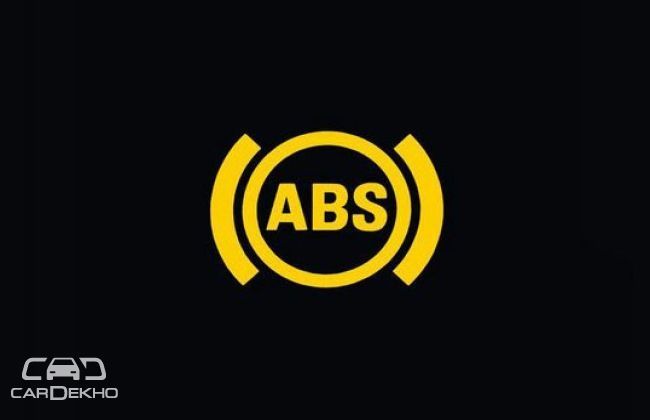Advantages and disadvantages of anti-lock brakes
Published On Sep 16, 2014 12:04 PM By Abhijeet
- 13.1K Views
- Write a comment

Of all the technical safety advancements in the automotive world, Anti-lock Braking System (ABS) has come a long way from being an option to a near necessity. Anti-lock brakes assist drivers to have better control and shorter stopping distances on slippery surfaces or through panic braking. The system monitors each wheels activity individually with the help of sensors. The brake pressure is then regulated to stop the wheels locking up and avoid slippage.
How does it work?

The concept is actually very simple. When a wheel slips it has lesser grip than a moving wheel. Your car is connected to the road underneath via the contact patch of the tyres. When a tyre is skidding in relation to the road, your vehicle is not stopping. Another problem that arises is that you are unable to steer the car if your tyres are skidding. What an ABS system does is avoids wheel skidding and allows you to steer while braking.

ABS comprises of four major components. It has speed sensors on each wheel, a pump, valves and a controller. The system gets information about a skid through speed sensors installed at each wheel, or in some cases at the differential. This information is constantly monitored by the controller which is essentially a computer that controls valves. The controller observes abrupt deceleration out of the ordinary, usually during panic braking.
When that happens, the controller decreases pressure to that individual brake until it sees acceleration. Then it increases the pressure till it sees deceleration again. The ABS does this quickly before the tyre can noticeably change speed. This means that the tyre slows down at the same rate as your vehicle, with the brakes keeping the tyre closest to the point where they lock up. This entire process is felt as a pulsating feel in the brake pedal. This pulse is due to the extremely quick opening and closing of the valves. Very sophisticated ABS systems can cycle up to 15 times a second.
Advantages of anti-lock brakes
- Shorter stopping distances: Anti-lock brakes reduce braking distances as the wheel does not waste distance skidding.
- Stopping on wet surface: ABS avoids wheel lock up and hence allows surefooted braking on wet sleety surfaces.
- Steer under braking: Anti lock brakes allow you to steer your car around objects if any as you still have grip on the wheels under intense braking.

Disadvantages of anti-lock brakes
- The primary disadvantage of ABS brakes is the increased cost it adds to the overall cost of a vehicle. Also maintenance costs go up as the sensors on each wheel are expensive and get heavy on the pocket if they run out of calibration.
- The job of anti-lock brakes is to provide sure footed braking. But this also has a side effect that is the inconsistent stopping distances on various surfaces under variable conditions.
- Also a reason for concern is that these electronic systems are quiet delicate and adding more mechanics to your car increases the possibilities of system damages.
8 out of 9 found this helpful














